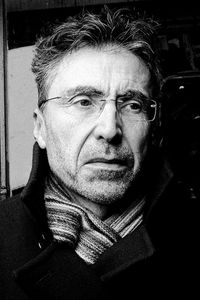Pierre Carles, a renowned individual, entered the world in 1962, specifically in the region of Gironde, France. His early years were marked by a considerable amount of time spent in Chile and Colombia, a circumstance that arose due to his mother's profession as a teacher at French schools. This distinctive childhood and adolescence would later have a profound impact on his worldview and narrative style, shaping the manner in which he approached storytelling.
As the late 1970s drew to a close, Carles made the decision to return to his homeland of France, where he embarked on a new academic journey, delving into the realms of socio-cultural animation and later, journalism. This marked the beginning of his professional journey, which would ultimately take him down a path of television production.
In 1988, Carles's career in television officially commenced, as he took on the role of a news cameraman for France 3 Régions. This position provided him with a solid foundation in the industry, allowing him to hone his skills and gain valuable experience.
As his skills continued to develop, Carles began to transition into creating humorous content for various variety shows. He worked with a number of prominent television networks, including TF1, France 2, Canal +, and M6.
Carles embarked on a journey of cinematic storytelling, commencing in 1993 with the creation of short documentaries for the esteemed Belgian-French television program Strip-tease, broadcasted on France 3, as well as the renowned magazine Brut, featured on the esteemed European cultural network ARTE. This inaugural foray into documentary filmmaking would ultimately prove to be a pivotal and enduring aspect of his illustrious career.
Carles, a visionary filmmaker, embarked on a new entrepreneurial venture in 1998 by establishing his own production company in Montpellier, a city that would serve as the backdrop for his creative endeavors. This marked the beginning of a remarkable journey, as he collaborated with esteemed producer Annie Gonzalez to bring his first feature-length film, Pas vu pas pris, to life.
Over the course of the following two decades, Carles would go on to helm or co-direct approximately ten feature-length documentaries, showcasing his versatility and passion for storytelling. These documentaries would delve into a diverse range of topics, including but not limited to, media criticism, the questioning of wage labor, and armed struggle.
Carles, a multifaceted individual with a keen eye for documentary filmmaking, has also ventured into the realm of capturing the likenesses of prominent figures through his camera lens. Among his subjects are the esteemed Professor Choron and the illustrious sociologist Pierre Bourdieu, whose notable contributions to the field have left an indelible mark.
In his documentary masterpiece, La sociologie est un sport de combat (2001),Carles offers a rare and captivating glimpse into the life and work of the inimitable Pierre Bourdieu. This thought-provoking film serves as a testament to Bourdieu's intellectual prowess, as it captures his exchanges with colleagues, journalists, and activists, providing a unique window into the workings of his extraordinary mind.
Carles has consistently showcased a profound dedication to delving into intricate social dilemmas, thereby illuminating the multifaceted human experiences that have a profound impact on our collective global understanding.
His remarkable body of work has continued to captivate and enlighten diverse audiences, thereby cementing his reputation as a highly respected and influential figure within the realm of documentary filmmaking.





















